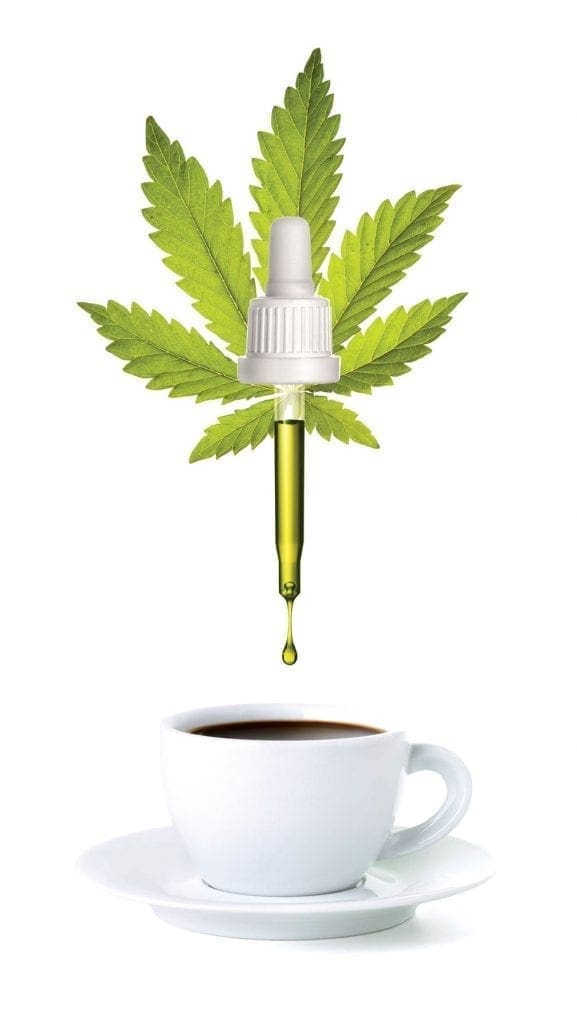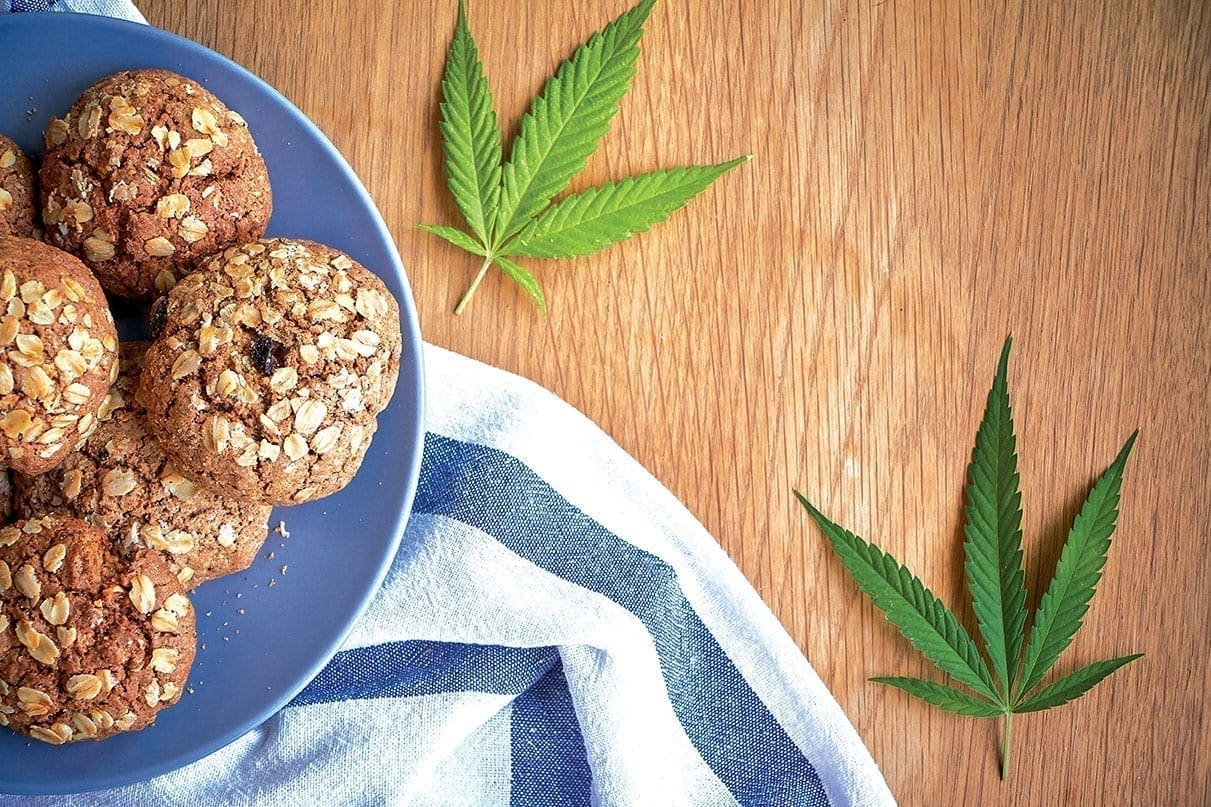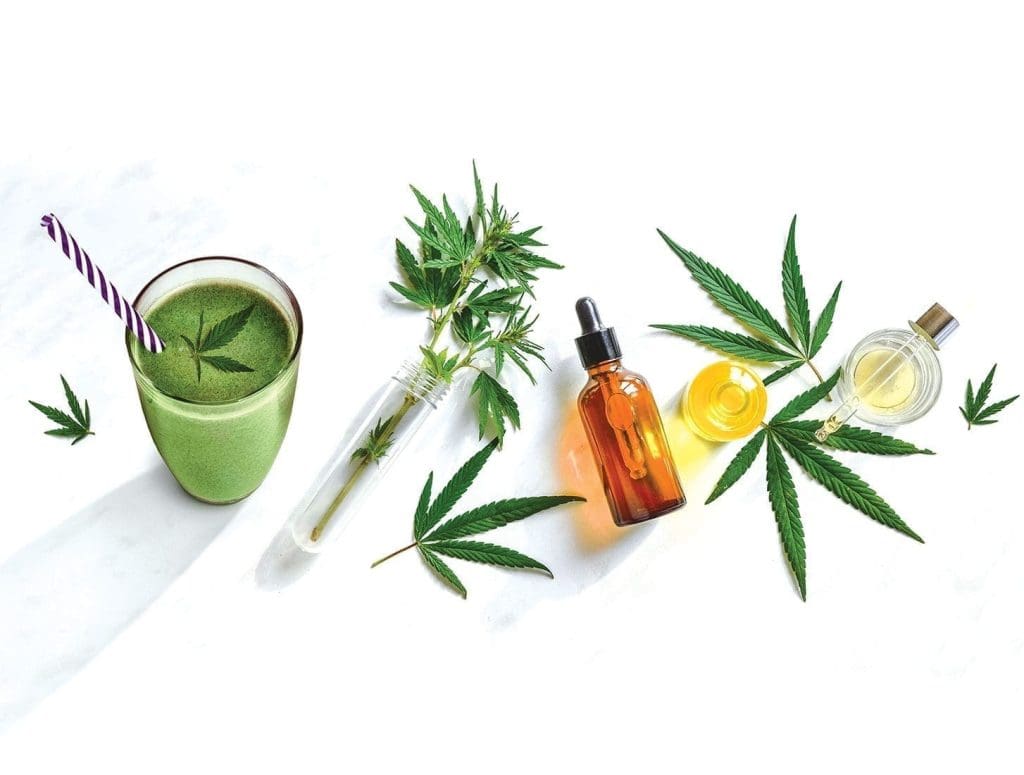By Rosy Alvarez
As the support for marijuana legalization sky-rockets, CBD has taken pop culture by storm. But, there are still many questions in terms of its trendy infusions in food, long-term effects and legality in the U.S. market.
There have been a slew of unique food trends that have become very popular in the last few years. From charcoal-infused ice cream cones to impossible burgers, it doesn’t seem like this pattern of “viral food” is slowing down anytime soon. The latest product to hit the market is CBD, a chemical derived from the hemp plant. CBD-infused milkshakes, coffee, cocktails, baked goods, and dinner meals have become incredibly easy to find. It’s fairly common for your favorite brunch cocktail to come with an optional infusion at a few extra dollars cost. Despite its increased demand, consumers, drug regulators and law enforcement officials still seem to be confused about the products’ legality, side-effects, and what the differences are between hemp and marijuana.

Hemp and marijuana are sister plants that both come from the cannabis sativa plant species. CBD is derived from the hemp flower and although both plants bear a visual resemblance, they have many chemical differences. The key difference is hemp has an extremely-low amount of THC which is the psychoactive chemical found in marijuana that causes a high. CBD products are FDA approved for distribution but retailers must adhere to federal guidelines that state the products must be hemp-derived and contain less than 0.3 percent THC. Hemp-derived CBD can potentially be used to treat any number of non-life threatening health issues. Some of those conditions include insomnia, anxiety, inflammation, chronic pain, and stress. However, long-term side effects of CBD consumption are still largely unknown, while short-term side effects include drowsiness, and when consumed in large amounts, may make you test positive for cannabis in urine drug tests. In addition, CBD is fat soluble, meaning you may eventually grow a tolerance to its chemical effects.
I’ve always been an “against the grain” kind of person, so naturally I didn’t jump on any of the popular offerings right away. Don’t get me wrong, I’m all for natural remedies and I always feel guilty getting rid of aches and pains with acetaminophen and similar over-the-counter medicines—the prior which has been linked to liver damage. CBD seems like a promising option when you are on the hunt for less physically damaging solutions.
To learn more about the retail side of CBD distribution I connected with Darek Wadja, the founder and owner of The Green Room, an ethical CBD shop located in Hoboken, NJ. Wadja does not claim that these CBD products are cure-all remedies for illnesses, but he does believe in natural alternatives to issues we all experience in some form or another. His suppliers include local New Jersey businesses like Bimble, VeloBar and Kalo as well as others from California, Oregon, Florida and Nevada.
I asked Wadja if the majority of The Green Room’s clientele are looking for health benefits or if they are mostly recreational users. “There’s a healthy combination of the two. Most people are using these products because they are looking for some sort of relief. Whether its pain management, anxiety, stress or even insomnia, everyone comes into the store with a purpose,” he explained. CBD’s benefits are extensive when used properly and provides relief more specifically as an anti-inflammatory treatment.
By now, most of us have noticed advertisements and menu selections for dishes or drinks that are infused with CBD. I found myself puzzled when I started noticing the phrase “CBD-infused coffee” written onto intricately detailed chalkboard announcements outside of my favorite coffee shops. I saw it on social media, on dinner menus, and even on happy hour drink specials. Just as swiftly as it came, it disappeared. New York City banned all retail sales of CBD products in the summer of 2019. New Jersey, however, did not.
If you are a big fan of the CBD-infused products you have tried, the market is growing. More and more businesses are opening up that cater to the natural remedy/cannabis-friendly demographic and beyond. Legality is becoming less black and white and we can see a shift in politics in terms of support for full cannabis legalization. Some places where you can enjoy ethically-produced, CBD-infused products include The Green Room. They sell a variety of CBD-infused topical creams, candies, teas, and tinctures. All of the products sold by The Green Room are third-party lab tested and go through a research process before they’re added into the store. Customers are also offered free samples of new concoctions, and if those products get positive feedback, they are placed out on shelves.
Locally, it seems CBD-infusions are popping up everywhere. Frankie, a Jersey City restaurant, also specializes in CBD infusions. They allow customers to add Rosebud CBD to any drink on their menus, from coffee to cocktails and mocktails. Their focus on natural, farm-to-table, fresh food makes this place a contender for trustworthy places to try anything infused. Another spot in Hoboken, Northern Soul Kitchen & Bar, endearingly call themselves “a neighborhood joint” also offers CBD-infused drinks on their menu.
Since many eateries have adopted infusing their food and drinks, it’s important for restaurants to be transparent about where their CBD product comes from and how much they’re using. It is also crucial for us as consumers to know how much CBD is in our dinner, drinks, and where these establishments are getting their products from. Sometimes that information is not easy to find and we need to be in charge of asking for it.

CBD does not have a recommended daily intake the way alcohol does. Even if it did, everyone’s body is different and therefore reacts differently. I wondered if eateries took serving sizes into account when offering so many different kinds of cannabis infusions. Wadja recommends trying CBD products in small doses before bedtime to notice how your body reacts. He also mentioned that he was glad to hear NYC banned CBD products, noting that businesses were simply looking to make a quick buck. The problem with trends is that when a really great product hits the market, a lot of lower-quality, cheaper knock-offs follow. This phenomena is no different when it comes to the cannabis industry. Many of the affordable CBD options on Amazon have been reported to have little to no actual CBD in them.
It’s important to note that CBD has a boiling point, meaning if it is heated improperly it will lose all medicinal value. It has taken Wadja a number of years to learn how to properly infuse consumable products with CBD and the differences in quality. This is why the whole trendy coffee infusions are questionable in the first place. How could so many businesses become experts on CBD seemingly overnight?
When used in moderation and bought from quality-focused suppliers, there’s no reason why you can’t use CBD for your insomnia, body aches or just for fun. Its health benefits are becoming too clear to ignore, but there is also not enough science to prove if there are negative side effects when consumed long-term. When CBD is on the menu, remember to ask questions. And as the relationship between CBD and food evolves in the coming years, it’s important to know exactly what (or how much) is going into your body.
The New Jersey Digest is a new jersey magazine that has chronicled daily life in the Garden State for over 10 years.
- Staffhttps://thedigestonline.com/author/thedigeststaff/
- Staffhttps://thedigestonline.com/author/thedigeststaff/
- Staffhttps://thedigestonline.com/author/thedigeststaff/
- Staffhttps://thedigestonline.com/author/thedigeststaff/


